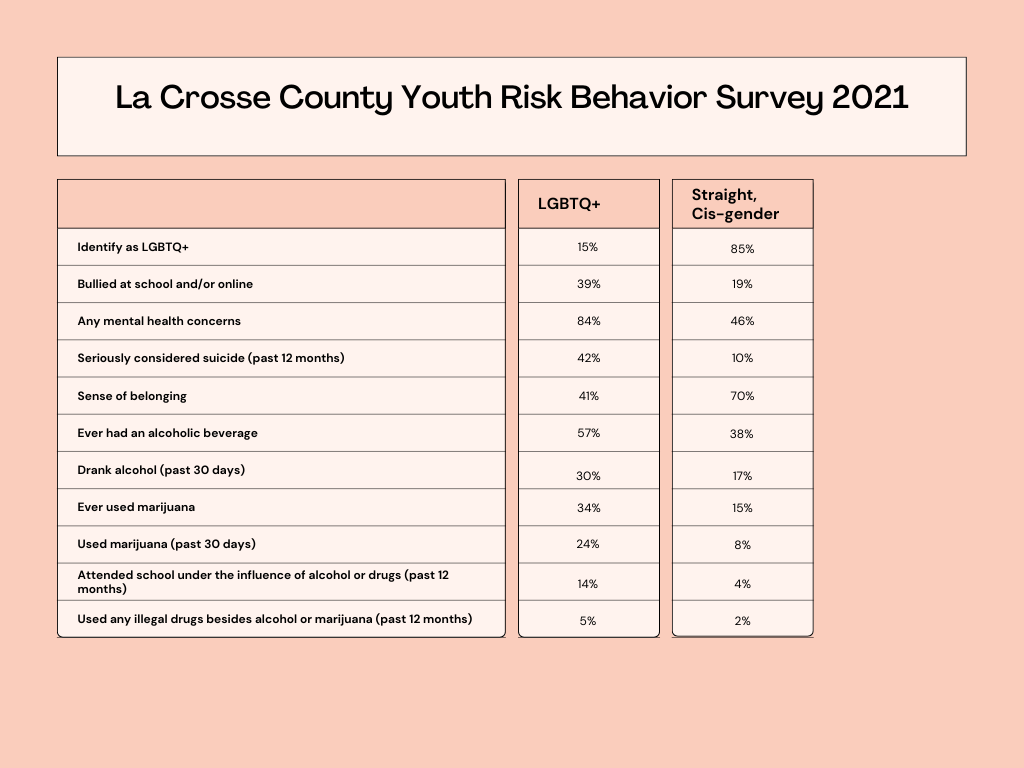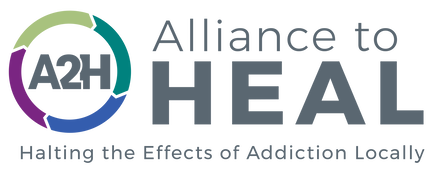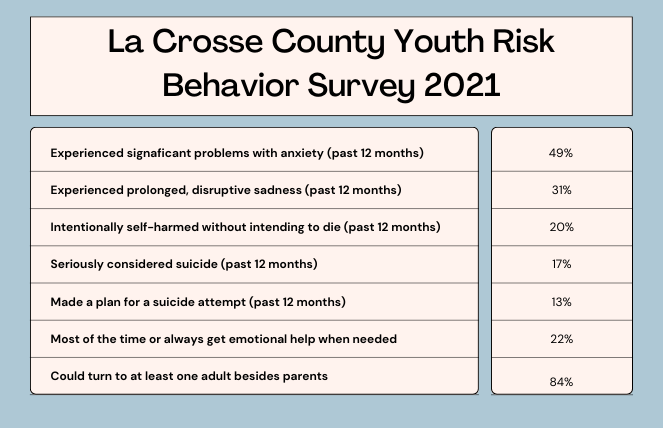Recent Events:
Mental Health and Substance UseAccording to the CDC, risk factors for youth high-risk substance use can include mental health issues. Pre-teens, teens, and young adults with mental health concerns have an increased risk for alcohol, tobacco, or other drug use. Below are the results of the Youth Risk Behavior Survey taken by La Crosse County High School Students in 2021. Having a mental health concern does not cause substance use, but it is important to recognize and acknowledge to help reduce the risk of initiation. There are strategies that adults can do to help all teens remain substance-free including discussing expectations of substance use and positive reinforcement. Strategies that are specific to youth struggling with mental health issues can include seeing a counselor and using online resources such as FindSupport.gov. Healthy Alcohol MarketplaceIn order to reduce chronic disease like high blood pressure, breast cancer, heart disease and digestive problems which can be caused by alcohol, we need to better understand how they are marketed, where and how they are sold and in what communities. La Crosse County volunteers collect data that sheds light on alcohol marketing and advertising in places youth shop.
This year’s Environmental Scans documented the increase of ready-to-drink (RTD’S) available at grocery and convenience stores over the past 6 years. RTD’s can be sold individually or in packs. What is the reason for this popularity? Convenience for one. You don’t need a recipe, or a multitude of ingredients and tools plus you get a variety of drinks. Drinkers, particularly, young people are interested in healthier drinks: lower calories, less alcohol, and “healthy additives” such as B vitamins, ginseng, etc. What are Alliance to Heal concerns?
One way to change the impact of alcohol on the youth in our community is to change where alcohol can be sold is through alcohol outlet density. Alcohol outlet density refers to the number of physical locations where alcohol is sold within a geographic area, such as a square mile, census track or city block. Density can be regulated at the state and local levels through zoning and business licensing.
0 Comments
Recent Events:
The LGBTQ+ Community and Substance Use Pre-teens, teens, and young adults that identify as LGBTQ+ have an increased risk for alcohol, tobacco, or other drug use. Recent research has identified a number of key life experiences specific to the LGBTQ+ community that increase the risk for substance use. Below are the results of the Youth Risk Behavior Survey taken by La Crosse County High School Students in 2021. The results indicate that this research holds true for La Crosse County. Being a part of the LGBTQ+ community does not cause substance use. Rather, some differences between LBGTQ+ youth and straight, cisgender youth - mostly consequences of prejudice - weaken their support systems and increase the pressure for them to use substances. Understanding these risk factors and differences is crucial for helping LGBTQ grow up substance-free. Some of these differences include bullying and harassment, family rejection and conflict, gender stereotypes and dysphoria, and peer influence. There are strategies that adults can do to help all teens remain substance-free including discussing expectations of substance use and positive reinforcement. Strategies that are specific to LGBTQ+ youth include providing family support, providing a safe school environment, creating a LGBTQ-affirming environment, and preventing and addressing bias and bullying. Linked here is a guide on how to start the conversation with LGBTQ+ youth to provide a safe, affirming environment. Upcoming Events:
|
ArchivesCategories |



